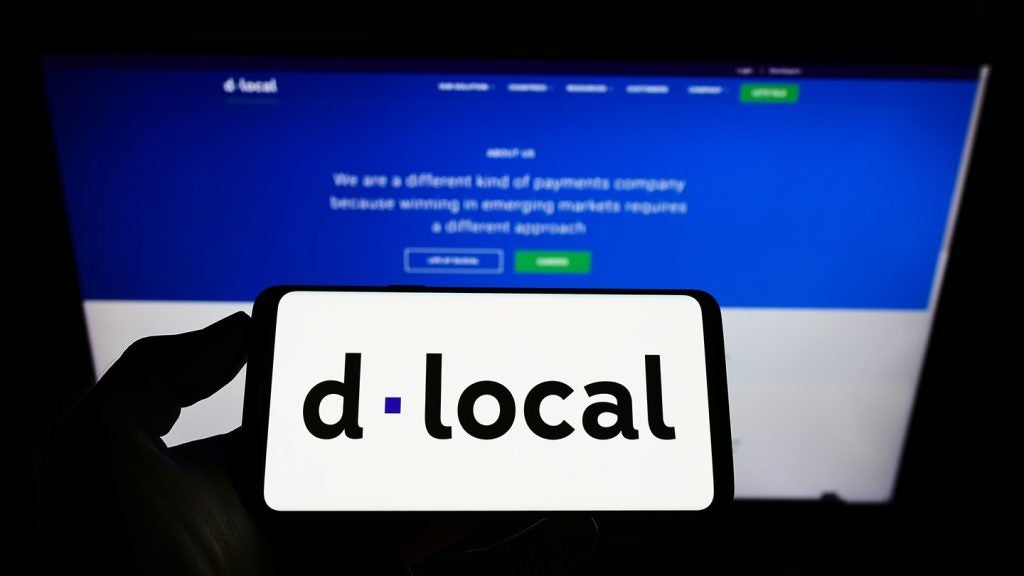While many financial institutions and payment players
are scaling back their operations and trying to minimise costs,
First Data is bucking the trend with continued investment in its
recently-rebranded FirstVision platform. John Hill speaks to Nadeem Shaikh about
the rationale behind the rebranding.
.jpg) Despite posting
Despite posting
disappointing results for the first quarter of this year, First
Data has been decidedly upbeat and has rebranded its VisionPLUS
full-service global issuing and consumer finance processing
solution into FirstVision, already scoring several lucrative deals
with UK-based Vanquis and Co-operative banks.
Nadeem Shaikh, head of financial institutions
services for First Data’s international business, explains why he
believes now is a golden opportunity for investment, and how
Brazil, China and consolidated platforms are the way forward.
CI: What was the rationale behind the
rebranding of VisionPLUS to FirstVision?
NS: A few years ago as we looked out
on the marketplace, we wanted to create a global platform that
worked across the international markets.
How well do you really know your competitors?
Access the most comprehensive Company Profiles on the market, powered by GlobalData. Save hours of research. Gain competitive edge.

Thank you!
Your download email will arrive shortly
Not ready to buy yet? Download a free sample
We are confident about the unique quality of our Company Profiles. However, we want you to make the most beneficial decision for your business, so we offer a free sample that you can download by submitting the below form
By GlobalDataThe problem was that what
traditionally happens is that people have a US platform, bring it
across to the UK and then into Europe and then get stuck, because
the underlying platform doesn’t really work with multi-language,
multi-bank and differing fee structures.
So we decided that using the core of what we
had, called VisionPLUS, we could start to really develop it and
bring in a lot of investment and our UK and Middle Eastern client
base across to this new platform. FirstVision for us is the global
issuing and consumer finance solution that we have put
together.
This includes the core payments engine that
you could use for credit cards, debit cards, corporate cards,
loans, prepaid, loyalty, private-label cards, and we also use it
for acquirer costing in some markets.
FirstVision is still part of First Data, it’s
a solution for our issuer and consumer finance processing and what
we’ve done is we’ve branded what used to be VisionPLUS as
FirstVision.
We’ve licensed the product in a whole bunch of
places including some third-party processors that use the core
VisionPLUS product, and they use it for offering processing
services, so while they are our customers, they also compete
against us in the marketplace for third-party processing.
However, when we walked around and spoke to
our customers about the new VisionPLUS, they assumed it was the
version they were running or the version they had been used to
years ago, as opposed to the version we had put together with the
investment made around enriching the core product plus all the
surround services.
So that’s a differentiation for us from the
old VisionPLUS heritage to truly creating a global platform called
FirstVision.
CI: Doesn’t the current economic climate lend itself more to
scaling businesses back, rather than launching (or relaunching)
brands?
NS: For us, now is really is a prime
time to make an investment, and I think what differentiates us from
our competition is that we are in a very strong position.
Our balance sheet is healthy, we
have very good cash flow coming out of the business and for us this
is absolutely the right time to be investing in our underlying
technology, in our platforms and data centres and really our sales
force and project management capability and so on.
This is the time for us to be going
out and making those investments and rolling those products out in
the marketplace so that as the market recovers we are in a place to
benefit.
In terms of what’s happening in the
marketplace, clearly there are changes in spending patterns – there
is movement away from credit to debit, some of the average values
of the transactions are coming down and people are migrating from
high-end retailers to lower retailers.
We’ll be seeing a flattening out in the
transaction trends so it’s not declining anymore, but if you break
it down into the kind of customers we have and the geographical
footprint we have – Europe, Latin America, Asia-Pacific – they’re
all in different states of play.
Some of them are emerging portfolios, some of
them are mature portfolios, and we see different kinds of demand
around that. For example, within the mature portfolios there’s a
lot more demand for risk management, fraud management, collection
activities, mostly for the electronic products but sometimes also
for the manual services we provide that look at their portfolios
with data analytics.
Then there’s a related demand which is around
cost consolidation. I suppose once you get onto the platform with
us and you roll out the credit card you can then roll out a debit
and a prepaid card without having to reinterface everything within
the bank. So there’s a cost-saving exercise going on.
CI: So you think the future of the
market is in end-to-end payments platforms?
NS: I think people are definitely
looking for a consolidated platform. Clearly banks are looking to
provide a service but are less interested in making the technology
investments themselves to provide that.
There’s also a new demand we’re
seeing in the government sector for electronic payments processing,
but this is more in the emerging markets, in markets like Egypt and
India, and we’re starting to see it in China as well.
Where the governments do a lot of subsidy
payments, they also do a lot of pension payments, subsidy payments
for farmers and so on, and what they call family cards. These cards
are issued so that people can buy flour and bread and so on.
Previously a lot of these things were
happening in cash and increasingly the governments are asking how
they can get the funds to the right place and then using the
mechanism, especially the chip cards coming in, to control the
demand and supply, so making sure that what they’re putting out
there in terms of bread and flour is actually getting to the right
person and using a card as an entity to be able to control it.
The last general category we’re seeing is with
some of the deals we did last year with credit scoring specialists
Experian when we took over some processing services.
Smaller processors who were providing services
to other banks, using some technology they had or using a version
of something from us, are increasingly under pressure as well.
They have to make investments in terms of the
data centres to deal with the new regulations coming out, as well
as back-up recovery, and they don’t have those funds readily
available in today’s climate to make the investment.
Increasingly they are turning to us to provide
the white-label service or handing over the lock and key to us and
asking us to do it for them.
CI: What areas of the market are you
seeing growth in?
NS: We have a large presence in a
lot of markets and what we do is try and put the infrastructure
down to support those businesses.
Asia clearly represents a growth
market, and we feel we have to do more to really leverage ourselves
in key markets like China. We’re present in China, but we need to
scale up that business – the same goes for India and some of the
other Association of South East Asia member countries.
Then you look at some of the other countries
like Brazil that represent a big opportunity for us, we have about
100 people on the ground there, but it’s not in line with the
opportunities that the market represents.
We’re going for a big push in Brazil and some
of the adjoining South American countries, as well as what we call
the emerging markets even though we are physically present, like
Turkey, the Middle East and especially South Africa.
There’s a big variation between regions for
us. If you go into Brazil, Argentina and some of the South American
countries, Chile or Colombia for example, the recession is not
there as they bottomed out early on this year. So, for them the
market is growing. Even in places like the Middle East where
there’s been a lot of turmoil in the credit market, the actual
underlying transactions and the underlying spend is still there and
it hasn’t changed that much.
Clearly this is in sharp contrast to Europe
and the US, but because we had that balanced portfolio and a
balanced market presence in a lot of countries there’s also a very
different demand field for our business than what it would be if we
were operating in one particular market.
CI: What obstacles have you seen since
you started work on FirstVision, and what problems do you see
arising in the future?
NS: If you want to compete at the
right levels and provide the right kind of services to your clients
and enable them to address both their top line and bottom line, you
have to have a platform that’s truly global.
You have to have local
infrastructure, and what I mean by that is that you have to have
people in the marketplace in the countries present on the ground
that provide the sales capabilities, the product knowledge and the
sales support and client services post production. You can’t do it
from far away.
You have to have capital and cash flow to
support growth, and we are investing and continuing to invest.
For example, we entered Turkey and Pakistan
last year, and we’re moving into Brazil this year. When you have
that kind of market you need a delivery bandwidth around it in
terms of making sure you have enough project managers and programme
managers, conversion specialists and migration specialists and
business analysts to be able to support that.
Just in terms of First Data, we have about 700
people within the company that deal solely with FirstVision and
VisonPLUS, as well as a dedicated staff at Cap Gemini that means we
have close to 1,500 people globally working with only
FirstVision.
Without being too over the top about this, we
have the ability to really invest more in our solutions and data
centres than some of our competition makes in their net profit
annually.
|
First Data |
|||
|
Quarterly results |
|||
|
Q108 |
Q109 |
%chg y-o-y |
|
|
Revenue ($bn) |
2.1 |
2.1 |
0 |
|
Earnings before |
586 |
491 |
-16.21 |
|
Operational loss ($m) |
222 |
231 |
4.05 |
|
Retail services |
83 |
54 |
-34.94 |
|
Financial services profit ($m) |
90 |
76 |
-15.56 |
|
International |
19 |
7 |
-63.16 |
|
Source: CI, company reports |
|||
|
First Data |
|
|
Recent contract wins and |
|
|
Date |
Notes |
|
20/5/2009 |
Vanquis Bank renews 7-year card processing |
|
20/5/2009 |
Co-operative Financial Services announces |
|
18/12/2008 |
Unipol Banca signs 5-year processing deal |
|
15/9/2008 |
Allianz Group Poland signs 5-year processing |
|
1/9/2008 |
Viseca Card Services of Switzerland extends |
|
18/8/2008 |
Alior Bank of Poland signs issuing and |
|
21/11/2007 |
Société Générale Consumer Finance signs |
|
1/10/2007 |
Moskommertsbank signs processing deal for its |
|
29/8/2007 |
Experian signs deal to transfer its UK |
|
Source: CI, company reports |
|







